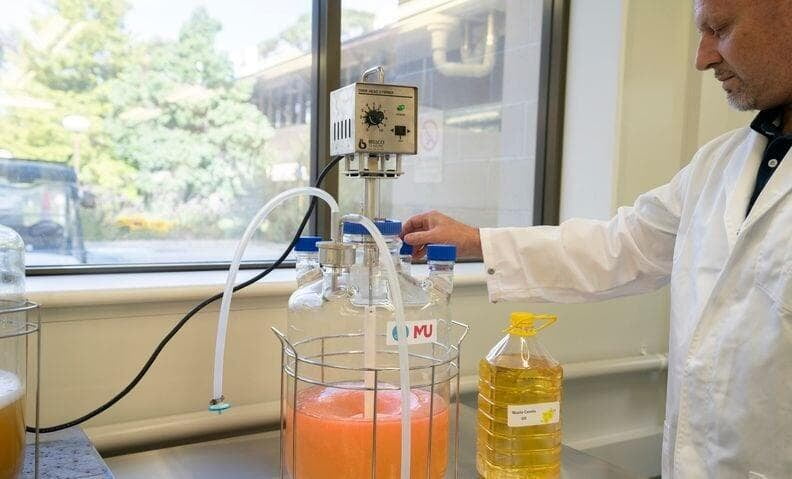On September 2, an AU$8 million (RMB 38.42 million) bioplastics innovation center was officially opened in Australia. The center is developing 100 percent compostable bioplastics from food waste such as cooking oil, including producing bioplastics that can decompose in compost, land or water. The center is a joint venture between Australia's national science agency, CSIRO, and Murdoch University, and is located on Murdoch University's main campus in Perth, Western Australia. It will bring together experts in microbiology, molecular genetics, synthetic biology, biochemical engineering, advanced manufacturing and the circular economy to translate advances in bioplastics research into real-world applications. It will also serve as a training center for the next generation of advanced biomanufacturing workforce.

The center is developing sustainable plastics from food waste such as cooking oil
Dr. Andy Whiteley, Director of Research Programs at CSIRO, said, “Our main focus is to develop 100% compostable, bio-derived packaging for use as sprays, films, bottles, lids and packages that have been engineered to break down completely in compost, land and aquatic environments.” The center's first project will be with PHA producer Ecopha Biotech Pty, also based in Perth. The partners aim to develop a new process to produce water bottles using PHA from food industry waste. Australia had introduced a national packaging target in 2018 in an industry-led program that does not penalize failure.
It calls for 70% of plastic packaging to be recycled or composted by 2025, but it's clear that Australia will not be able to meet this target, with only 18% of plastic packaging recycled in 2023. The Australian Government has also introduced new regulations that came into effect this week, including a ban on all soft plastic shopping bags and single-use plastics, including coffee cups, from September 1st. The new laws also require packaging to be designed to be safely recovered, reused, recycled and reprocessed in accordance with circular economy principles. South Australian Regulations From September 1, 2024, the following items will no longer be sold, supplied or distributed in South Australia:
Thin plastic barrier bags for fruits, vegetables, nuts and candies
Thick plastic shopping bags for supermarkets and boutiques, and plastic laminated paper shopping bags
Disposable plastic hot and cold beverage containers, including coffee cups and lids
Disposable plastic food containers for “ready-to-eat” foods
Expanded polystyrene (EPS) consumer food containers and EPS trays
Plastic grocery bag labels
Plastic confetti, plus balloon sticks and ties

